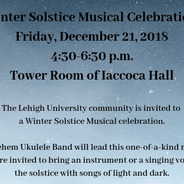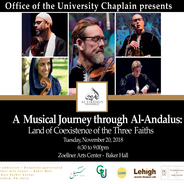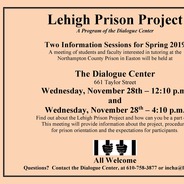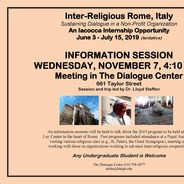"The Right to Life? A Right to Die? ....Nonsense!" A talk and discussion with Professor Dennis Cooley. September 24, 2014
The Ethics of Death: Religious and Philosophical Perspectives in Dialogue, a new book by Lloyd Steffen and Dennis R. Cooley, explores the moral issues that arise when humans deal with death. It includes chapters on abortion, the death penalty, war, suicide, physician-assisted suicide and euthanasia. Steffen is professor of religion studies, university chaplain and director of the Center for Dialogue, Ethics and Spirituality and the Prison Project at Lehigh.
Cooley is professor of philosophy and ethics and associate director of the Northern Plains Ethics Institute at North Dakota State University. Steffen and Cooley held a panel discussion about their book at Lehigh on Sept. 24.
At the end of each chapter in their book, Steffen and Cooley ask each other questions. Steffen comes from a natural law ethical perspective, which, he says, “becomes sort of a basin that catches the best parts of all the other ethical theories without necessarily taking the worst parts.” Cooley prefers a Pragmatic Principle, which he describes as part utilitarianism and part Kantianism. During his visit to Lehigh, Cooley joined Steffen for an interview with Rosa Rojas, which follows.
Is it better for controversial matters involving death to be decided by the Supreme Court (such as abortion) or by the states (such as assisted suicide and the death penalty)? Steffen: Part of what you’re asking is about the general relationship of law to morality, and law has a role to play. In controversial issues where consensus about moral meaning is lacking we sometimes have to turn to those institutions that make decisions on policy so that we can conduct the normal business of society. On life and death issues we have to set and abide by moral standards that we then translate as best we can into social policy—law—to determine what’s permissible and not permissible.
Cooley: It depends on what the issue actually is. I don’t want to treat death as a monolithic sort of thing; it needs to be broken down into its component parts. Sometimes smaller groups do a better job making decisions because they understand the people the decisions will apply to better. So states, in certain cases. But sometimes you do need to have a national decision on these issues just so that people can do their planning and understand what’s going on. I do want to make a distinction between law and morality. Morality applies to all of our actions, all the time. What law needs to do is to be able to give you rules so that society can run. We’re interested in morality, which includes personal morality. An individual has a certain morality, certain realities about their situation: it’s their parents dying, their child dying or they’re dying. Those are unique circumstances and those decisions should rest with those individuals. Steffen: Sometimes the issue is what role law should play at all. That’s one of the issues in the abortion debate, which is not only a moral but a legal and medical question as well: is it a legal issue that needs to be straightened out by the courts or is it a medical issue that a woman should be undertaking with her physician? There’s a disagreement about that in our society and when you have a disagreement about that kind of issue, we often turn to the law to manage the conflict and maintain societal peace.
In your chapter on abortion, you say that a potential person (fetus) cannot be as intrinsically valuable as a person (woman).
Cooley: The reason why I say the fetus is a potential person is because being a person requires certain characteristics. One of them is being rational. And rationality is quite an advanced thing for a person to do. It’s being able to make your decisions, being able to look at evidence, change your behavior, change your viewpoint based on the evidence, to make free choices. There’s a lot involved with it and fetuses can’t do that because their brains have not developed, especially if we are talking about a conceptus, an entity that’s basically the head of a pin. If it’s between a person and a fetus, a person is usually more intrinsically valuable just for that ability to reason, but also because they’re part of emotional relationships with other individuals. They are very tied in to the community, in to their families and so on…all of that counts, too. The fetus has the potential for that, but not the actuality.
Would more people think this way if men were the ones getting pregnant?
Cooley: I’ve always had a suspicion that the reason the abortion issue is so controversial and so heated is the fact that it is about women and giving women power. Men don’t really have any authority in being pregnant so you have this threat to power even though there’s really no threat to power involved here at all. The other part is that it’s so bound up in religion, which is part of people’s identity. When you’re questioning a person’s religion, you’re questioning them and their value as a person and that is like being called the worst name on the face of the earth and it hurts, it hurts a lot and there’s a threat so people react often violently.
Steffen: I agree with that perspective and I would just note how patriarchal our religious institutions are. It’s not just Western religions. We see this in Christianity, Judaism and Islam, but religions across the board have reflected patriarchal power arrangements that hold decision-making power over women. If you look at the abortion debate in the United States, the most vocal people on that issue seem to be men. I think that’s clearly the case. Abortion is a serious moral issue, but it is also a political issue that is raised in campaigns to gather votes from various voter blocks, some of which are religious blocks, and the difficult moral issues involved in abortion rarely get a hearing when they are reduced to slogans by people running for office.
What are your thoughts on the sex-selective abortions that have helped cause the “Missing Girls Phenomenon” in Asian countries?
Cooley: Sex-selective abortions are a tragedy in a huge way and the reason is because these women are being pressured to have abortions. Sometimes it’s the culture itself that they’ve inculcated so they’re doing it themselves. We have examples in India and China; those are the two most prevalent. By the way, Japan sometimes sex-selects for females to balance things out and because of their culture. In China and India, we have examples where midwives were forced to kill the female infant or to throw the infant down the well. This is after birth so this is not an abortion, this is murder. In China, a huge number of female infants are abandoned because they have had that restrictive one child/one couple rule. In comparison, the sex-selection abortions are not as bad because I think that if you have a baby, that’s intrinsically different from a fetus because one’s a potential and one’s an actuality. What they are doing, a lot of times, is making the best of a bad situation. I don’t like either one. I wish neither one would be done, but my wishing it and saying it shouldn’t happen isn’t a practical sort of thing. It’s happening. This is minimizing damage. The women who are doing this aren’t doing it, a lot of times, out of free will. In fact, I don’t know any time they do it from free will. Their families are forcing them, their spouses or males or the government is forcing them. It’s a very dangerous situation for them so I think just to protect themselves it can be morally permissible. In fact, it might turn into a moral obligation because I’m worried about the woman being destroyed in this. There are instances in which they are killed. That’s how bad of a situation it is. If it’s between female infanticide and female sex-selective abortions, I chose sex-selective abortions.
Steffen: I addressed the justifiability sex selection abortion in a book I wrote on the abortion question some years ago. If you were just to look at the idea of a society engaged in sex-selective abortion, it seems to me that it’s a coercive practice. A woman is not being acknowledged as an autonomous decision-maker. There are pressures being put on her that coerce her into doing something she does not want to do, and I think it’s a kind of abortion that cannot be morally justified. But if we’re talking about a political situation, which is the question you asked, where a woman’s life can be in danger if she doesn’t do this, I’m with Dennis. I think the woman’s life always trumps that of the fetus.
What are your thoughts on the recent botched executions in Oklahoma and Arizona?
Steffen: All I can say about that is that if there were such a thing as a justified execution—I don’t accept that there is even though that is how I approach the issue as an ethicist—one criterion that would have to be met is that persons not be tortured in executing them, at a minimum. Those botched executions are instances of torture. I’m opposed to the death penalty for all sorts of reasons and that one is an emotional strike. The idea that someone is taking 30 minutes to die and they’ve been given some kind of drug so that their reactions can’t be seen by the witnesses—they’re sedated with the cocktail they’re given, which prevents them from being overtly demonstrative about what they’re going through—is a moral horror.
Cooley: One of the main reasons I’m against death penalty is because it damages the morality of those imposing it. These botched executions should have been a wake-up call to that morality when people said, “Oh my gosh, this is terrible.” But what are they doing? They are going to keep doing it and in fact they said, “We’ll bring back the firing squad.” I think Utah is talking about bringing back the firing squad. Why would you do this? After you get your hand burned on a stove, you know not to put your hand on the stove again. We were burned seriously by this. So what’s the motivation to keep doing this? There’s an anger there that is not good for the individuals doing it. There’s hatred there, not a respect for life. I know these people who are being executed are generally not the nicest people in the world, but what does it say about us, the people who are doing it? We are able to form this opinion in anger to kill someone even though we know how horrific it is.
Dennis Cooley asked this question at the end of the chapter on war: Do you think religious beliefs contribute to more war and violence than if people were agnostics or atheists?
Steffen: I think it’s a mistake to think that religion causes violence. Religion is revelation, and people have to interpret revelation, so religion is what people make of it. It’s a cultural force. It’s a cultural institution. You can find people who want to use their religion to provide justification for various kinds of activity, some of them good and some of them not good. There are people who are religious who engage in acts of violence and undertake warfare and acts of terrorism. They can use their religion to help justify what they’re doing, but it doesn’t mean religion itself is the propelling force that’s making that happen. There are usually political causes and power issues at stake when people resort to violence. To be able to say that God is on my side is a very strong philosophical place to stand. It may not be the soundest argument to make, but it is a very strong argument to make because you’re claiming that the power in the universe that has all knowledge and all moral understanding is supporting, endorsing and propelling you forward to act in a certain way. It’s hard to argue against a position grounded in ultimate reality. We need to draw some distinctions between what religion is and what people do with religion. I’ve argued that religion can be about anything. People can justify the most heinous things that human beings have ever done by claiming God told them to do it. Religion has also inspired the noblest things that human beings have ever done. So what is that? It just means that religion can be used by human beings to justify what they are motivated to do for reasons that extend way beyond religion.
If physician-assisted suicide is made legal in the United States, some say the “right to die” may turn into an “obligation to die,” that people may put pressure on aging relatives. What are your thoughts on that?
Cooley: There hasn’t been a dramatic increase in physician-assisted suicide. But there has been a dramatic increase in people talking about the issues and trying to figure out how they want their lives to end. That’s been the real result of it. Margaret Battin thought there would be this pressure you’re talking about and that the society would change in such a way that the culture forces people to commit suicide, but that hasn’t happened.
Steffen: Even in Oregon, when that whole discussion got underway for the Death with Dignity physician-assisted suicide law, what happened as a result of doing the referendum and having the public conversation was that people came forward and said, “You know there are medical alternatives through palliative care.” A lot of people had never heard of hospice or the idea of palliative care and as a result of all of that open discussion about difficult dying palliative care is now something taught in medical schools. It’s integrated into medical training in such a way that it doesn’t just mean end of life anymore. Palliative care can be used for people with chronic illnesses and it has a much broader kind of meaning now. So some wonderful results have come out of having discussions about physician-assisted suicide. The idea that physician assistance in dying is a slippery slope and if we allow it we’re going to be killing the most vulnerable people in our society, people who can’t resist pressure and things like that… just go to the Oregon law, there are so many safeguards. I counted them up when I was doing research on the issue. There are about 70 different conditions placed in the Oregon law that have to be satisfied before you can get a doctor to prescribe a lethal dose of pills, and when you get them it doesn’t mean you have to take them. Half the people who get them don’t use them, but they’re really glad that they have them because they want to know that if things get really, really bad they’re going to have some ability to control what happens to them. When I hear appeals to a slippery slope argument, I feel like the ability to think has gone out the window. Slippery slope arguments are meant to cut off conversation. I think what’s important is looking at the actual record of what has happened in a state like Oregon, because the data says that’s not what has happened. Abuse of physician assistance has not occurred in the tightly regulated and legally constrained Oregon system, and it is not likely to happen in the future.
Story by Rosa Rojas
News Archive

Winter Solstice Celebration
Friday Muslim Prayer - LOCATION CHANGE 12/7
Guided Meditation

Al Firdaus Ensemble

Lehigh Prison Project - Spring 2019 Information Session

